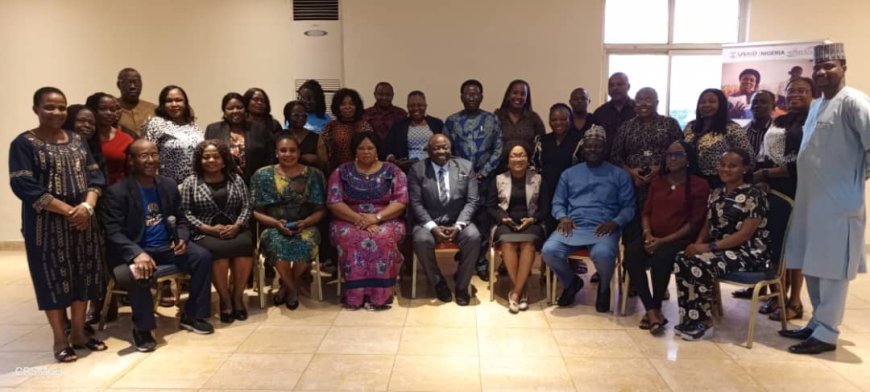C'River Gov't Says Quality Of Care Pivotal To Healthcare Service Delivery, As Training Begins in Calabar

By Kingsley Agim
Cross River State Government has maintained that quality of care among the newborn and elderly remains pivotal to the improvement of healthcare service delivery in the State and nation.
The Commissioner for Health, Dr Henry Egbe Ayuk, made the assertion, Tuesday, in the conference hall of Monty Suites, Calabar, while declaring open a 5-day training on Quality of Care for Reproductive Maternal, Newborn, Adolescent, plus Nutrition in the State, saying the present administration in Cross River aligns completely with the federal government's mandate to improve care, hence the need for the training.
"I welcome you to this training on behalf of the government of Cross River State. The importance of this training cannot be overemphasised. We must take this workshop seriously in order to deal with the issues of care that have been hitherto compromised in the health system," Dr. Ayuk stated.
The Health Boss stressed that care is nothing without quality. He charged participants to maximise their five days in the training, so that at the end of the day, they too can join the charge for quality of care.

Earlier in her opening remarks, the Head of Health Promotion in the Federal Ministry of Health, Madu Ezioma, conveyed the goodwill of the Minister of Health, Prof. Ali Pate to participants, with a call on them to make meaningful contributions that would deepen the course in the quest for quality of care.
"We all know that our indices are not good enough. We are putting measures to improve on areas such as maternal newborn, Child Health etc. We want the right thing to be done. I wish you a collaborative and interactive workshop," Ezioma concluded.
Speaking on behalf of the World Health Organisation (WHO), Cross River State office, Joy Ukachi expressed excitement at the training, pointing out that it would bring stakeholders up to speed with the knowledge of improving the quality of care in the healthcare service delivery chain.
Also speaking, the Cross River State Primary Health Care Development Agency's Director - Disease Control and Immunisation, Dr. Joy Chabo, decried the lack of capacity of personnel at the primary health care level, noting that the training would help to bridge the knowledge gap in the service delivery chain of the health sector.
A representative of Society for Family Health, Eme Effiong said the training was important for improving of healthcare services to the people. She enjoined participants to cascade knowledge gained to other service providers in the sector.
The 5-day training is expected to assist participants achieve the following: gain comprehensive understanding of global and national concepts on Quality of Care (QoC) and Quality Improvement (QI); familiarise and under the applications of World Health Organisation's Maternal Neonatal Child Health (MNCH) QoC Frameworks (domains, standards and measures aimed at improving the QoC delivery for mothers, newborns, children and adolescents; understand the rationale, status, identify stakeholders, analyse policies, and know the strategise for implementing QoC programme in Nigeria.
Others are: to Learn about standardised and recommended Quality of Care measurements and their application in the National Reproductive, Maternal, Newborn, Child, Adolescent and Elderly Health Plus Nutrition (RMNCAEH+N) QoC programme indicators; acquire skills to conduct QoC assessments and develop quality Improvement plans to enhance the quality of care within participating health facilities; understand the process of conducting QI projects in health facilities, including the application of the QI methodology with the Plan-Do-Study-Act cycle to improve care processes; explore the concept of people-centred care and respectful maternity care and learn how to use client surveys to improve patient experience of care within the health facility; develop the ability to oversee the start-up and ongoing support to facility-level QoC activities through QI coaching, peer-to-peer learning, and other relevant approaches.














































